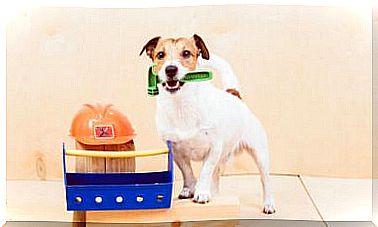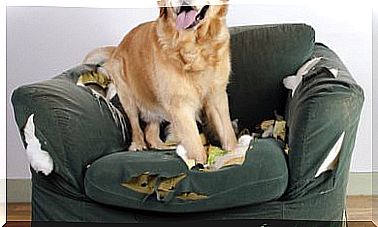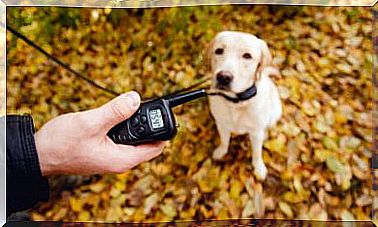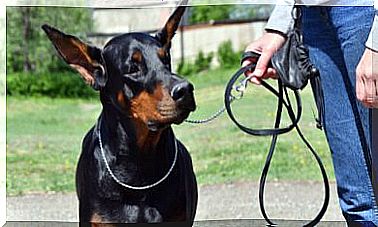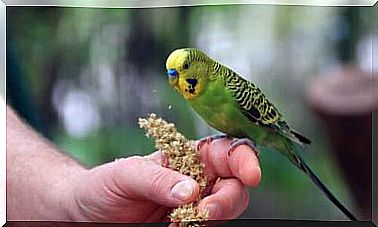Why Do Small Dogs Have More Character Than Large Ones?
If you have a sausage or a poodle, it is most likely that it is a bit moody, and you may wonder: why? There is a recurring myth in our society that small dogs have more character than large dogs, but it is not by chance.
There are many reasons why small dogs have more character. Much of the problem has to do with how we treat our animals, although other factors come into play.
Small size = big problem?
First, we must examine the position of the little dog : Animals of short stature are at the lowest level of the food chain. This is why we usually see breeds like Chihuahuas trembling or on constant alert.
As they do not pose a threat by themselves, being always vigilant is a method of survival. It is here that the spinal column by which this myth is sustained begins to be noticed: with fear, a dog can become aggressive.
As you are sure you know, aggression is natural in animals to maintain their survival. It allows them to be more careful and even react unexpectedly; An aggressive animal is like that because it suffers from constant fear.
The same goes for miniature dogs ; Aggression is a warning that it is dangerous and should be feared, but humans see this as funny.
This is when the big dilemma begins about whether small dogs have more character than large dogs. Given this, we must accept that there is no evidence that one breed is or is not more aggressive or dominant than another: everything has to do with the personality of the animal.
Why do small dogs have more character?
One of the main reasons why miniature dogs are more dominant than big dogs has to do with the way we treat them. Let’s take an example:
- A poodle can constantly bark at us and we will take it as a grace. It is very likely that we will laugh and even ignore him so that he continues to bark.
- A Great Dane can bark at us and we will be scared by it. Its size will intimidate us and we will take action to correct this behavior immediately.
Do you see the problem? As long as we let the little dogs continue to do their thing, they will continue to behave like little tyrants without control. On the other hand, we do not let the greats do their thing.
This gives us the feeling that small dogs have more character than large ones, but it is not like that. We actually let them learn this behavior, which turns them into little time bombs.
These behaviors are very destructive to our environment, and especially if you have other pets. Correcting these behaviors takes a long time, but it is never impossible to achieve, so we advise you to stop them as soon as possible with the appropriate therapies for each case.
At other times, we have another problem: we don’t let the dog have normal behaviors. That is, we treat it like the baby of our home. This should not be like that; the fact that the animal does not grow in size does not mean that it does not mature.
They are still dogs
As much as their size may be deceiving, small dogs age the same as larger dogs. It is very common for an owner to continue to see it as a puppy when the reality is different: the animal may be treated as a youngster, but its mind will be at least seven years old, for example.
Continuing to treat these animals like children will only have serious consequences : constant barking, general disobedience and even appropriation of household items are common symptoms of a syndrome called small dog syndrome (PPS).
To avoid this, it is best to give them a normal life, or rather, treat them like any other dog. The ideal would be to apply exercises that deplete the animal’s energy to prevent it from developing these destructive behaviors.
In addition to this, it is recommended to practice the corresponding obedience exercises for the breed. Avoid continuing to treat them like puppies after a certain age so as not to feed these undesirable behaviors.
In some cases, you can lose control of the situation, so a consultation with the veterinarian or a dog psychologist is required. Remember that every dog has its life stages, which must be respected so that your dog has a happy and normal life with you.

